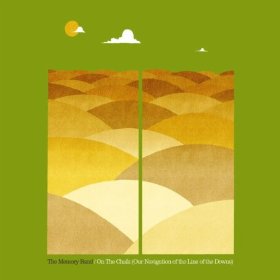There is a suspicion, particularly in the British Isles, that if you take too much of an interest in our cultural heritage, our natural landscape, our social history and old ways of doing things, that you are somehow a luddite, a reactionary or worse. This is not entirely unjustified; the folk music purist, for instance, is no better than the classic rock bore, and there are certainly dangers in unqualified nostalgia, in pining for a lost, pre-industrial golden age that never was. You conjure up a fantastical hodgepodge of HE Bates and Edwardian Imperial propaganda boys’ adventure stories, infantilised nursery room sketches replete with lashings of treacle tart and ginger ale, and soon start blaming the Others – the adopters of modern technology, the feral young, the feckless poor, the immigrants – for the fact that your imagined ideal of Merrie England doesn’t exist, and never did. Before you know it you’re voting UKIP and attempting to marry your pet Pit Bull Terrier to avoid paying the gas bill, or something.
And yet, to truly know our history, on a grass roots level, is to know a history of radicalism and struggle. Folk songs, handed down through the generations, were rewritten with each passing. And to live in and study nature is to know the passing of the seasons, the cycle of birth and death. Nothing stays still, nor should it; change may be for better or for worse, but it is inevitable that there will be change. Hardly any of our countryside is "unspoilt"; ours has always been a working landscape, hewn by hoe, plough and tractors. Certainly there are things worth preserving, and the things that cannot be preserved should still be remembered. But this doesn’t mean rejecting the new, or the principle of change. We are walking on an old path, but one that goes ever forward.
The Memory Band’s Stephen Cracknell is well aware of this, I think. On his fourth LP with the loose aggregation of musicians and collaborators who make up his band, Cracknell has chosen to research and write about the oldest road in Britain, the mysterious Harrow Way. This is the Western part of the Old Way, a lost road that ran from Rochester and Dover, through Kent, Surrey, and Hampshire and on to Dorset and the Devon Coast. The Eastern part, known as the Pilgrim’s Way, diverts down to the Cathedral city of Winchester; the Harrow Way picks up in Farnham, rising to Stonehenge before descending down into the West Country.
Also known as the Harroway, the Hoary Way or Heargway – the road to the shrine, i.e. Stonehenge- the Harrow Way still exists in fragments, under existing roads or as grassy tracks and footpaths. It is as much an idea as a route, these days, although walking parts of it, as Cracknell has done, can still be a powerful experience, bringing one into contact not just with the beauty of the natural world but with strong psychic and actual reminders of English History. Myth melds with actuality and becomes startlingly real, breaking the surface of modernity like a wild salmon leaping upstream.
On the Chalk is a darker, more experimental set than the Memory Band’s last album, 2011’s Oh My Days, and is all the better for it. Opening in a hum of static and birdsong, lowing sheep and barking dogs, ‘The Wearing of the Horns’ finds us in the ancient Hampshire village of Weyhill, as electronic bass pulses across buried rural voices. At first bucolic, the atmosphere grows quickly more unsettling. Repeated distant shouts of "You’ll burn!" are answered with a matter-of-fact "That’s what’ll happen to all you people that haven’t accepted Jesus Christ," before sparse piano chords usher in a mournful folk chant.
The piano melody develops into a rolling gait on ‘I See Cuckoo,’ beneath more passing voices, one of which shouts "too late!" and a pagan air on the recorder. With ‘When I Was On Horseback’ we’re higher from the ground, looking out over the wide English landscape and moving at a steady clip as shadowy hooded monks dog our path, murmuring sinister Gregorian chants. With ‘Follow the Sarsen Stones’ we’re up on the Marlborough Downs, as a stately trumpet leads what is almost a formal dance tune, albeit with contemporary rhythmic flourishes.
The Memory Band have spent the last few years playing music from The Wicker Man to appreciative crowds at summer festivals (Glastonbury, Green Man), and this has certainly leaked into the mood of this album. There is also something of the Ghost Box aesthetic, like an acoustic version of the Advisory Circle; a palpable darkness lurking in the Old Way, a hint of witch trials and villages lost to starvation or disease, all the vanished undergrowth of Old Weird Anglia. The jaunty ‘On Dancing Hill’ gives way to the sorrowful ‘What Blood is This’, and ‘Facing the Granite Country’ is oozing, ominous and electric, sounding more like a John Carpenter score than a cosy jig. ‘Along the Sunken Lanes’ undulates around a robust, mechanical skipping rhythm that’s more Basil Kirchin than Double Dutch, and ends appropriately in a babble of children’s playground voices.
Yet ‘As I Walked Over Salisbury Plain’ captures a sense of silent majesty and buried history, tramped down beneath the damp, chalky soil, and the elegiac ‘The Highest Song in the Sky’ is dedicated to the iconic angler, broadcaster and writer Chris Yates. Ultimately you feel Cracknell’s sympathies lie with the land and the people, the quiet and the kind. He is, however, no reactionary. "What is our nature? Change." A sampled voice asserts on final track, ‘Where the River Meets the Sea.’ Just as water must flow or grow stagnant, the Memory Band continue to irk the purists by reinvigorating traditional folk tunes with contemporary technology and fresh musical ideas, questioning and illuminating our troubled relationship with our collective past along the way.


